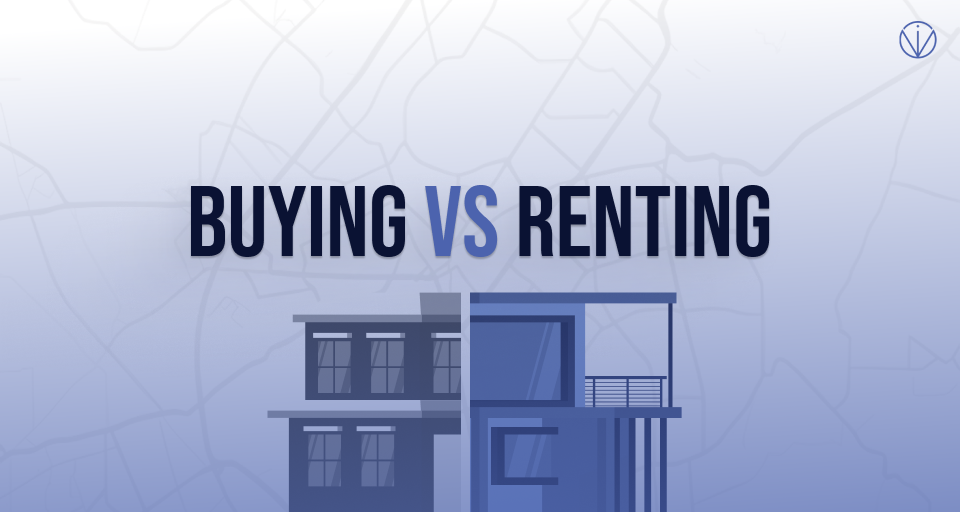Buying VS Renting
1. Financial Stability
- Buying: Purchasing a home typically requires a significant upfront investment, including a down payment (usually 10-20% of the property price), closing costs, and potential renovation expenses. Monthly mortgage payments, property taxes, and maintenance costs should also be factored in. However, owning property can be an excellent long-term investment as it builds equity over time.
- Renting: Renting requires a lower upfront cost, usually consisting of a security deposit and the first month’s rent. Monthly rent payments are generally fixed for the lease term, making it easier to budget. However, renting does not build equity or offer long-term financial returns.
2. Lifestyle Flexibility
- Buying: Owning a home offers stability and the freedom to customize your space as you like. However, it can tie you down to a location, making it harder to relocate for job opportunities or lifestyle changes.
- Renting: Renting provides flexibility to move at the end of your lease term, which is ideal for those who frequently change jobs, travel, or prefer a minimalist lifestyle.
3. Market Conditions
- Buying: In a buyer’s market, where property prices are low, purchasing can be a great investment. However, in a seller’s market with inflated prices, renting might be more cost-effective.
- Renting: Renting can be more economical in high-cost housing markets where buying a property may require taking on substantial debt.
4. Maintenance and Responsibility
- Buying: Homeownership comes with full responsibility for maintenance and repairs, which can be time-consuming and costly.
- Renting: Landlords are typically responsible for major maintenance and repairs, reducing hassle and additional expenses for tenants.
5. Investment Potential
- Buying: Real estate often appreciates over time, offering potential financial gains if you decide to sell. It also provides an opportunity to generate passive income by renting out the property.
- Renting: While renting doesn’t offer direct financial returns, it allows you to allocate your savings into other investment opportunities, such as stocks or mutual funds.
6. Tax Implications
- Buying: Homeowners may benefit from tax deductions on mortgage interest and property taxes, depending on their country’s tax laws.
- Renting: Renters usually don’t enjoy tax benefits, but they also don’t bear the burden of property taxes.
7. Emotional Factors
- Buying: Owning a home provides a sense of stability, pride, and belonging. It can also fulfill personal aspirations or cultural expectations.
- Renting: Renting offers peace of mind with fewer responsibilities and the ability to explore different living environments without long-term commitments.
When to Buy
- You have a stable income and sufficient savings for a down payment.
- You plan to stay in the same location for at least 5-7 years.
- The local real estate market is favorable for buyers.
- You’re ready for the responsibilities of homeownership.
When to Rent
- You’re unsure about your long-term plans or job stability.
- You prefer a low-maintenance lifestyle.
- The housing market is overheated or overpriced.
- You want to allocate your savings to other investments.
Conclusion
The decision to buy or rent depends on your financial situation, lifestyle preferences, and long-term goals. Renting offers flexibility and lower initial costs, while buying provides stability and an opportunity to build equity. Carefully evaluate your needs and consult with financial advisors or real estate experts to make an informed choice. Whether you decide to rent or buy, ensure the decision aligns with your overall life plan and financial health.
